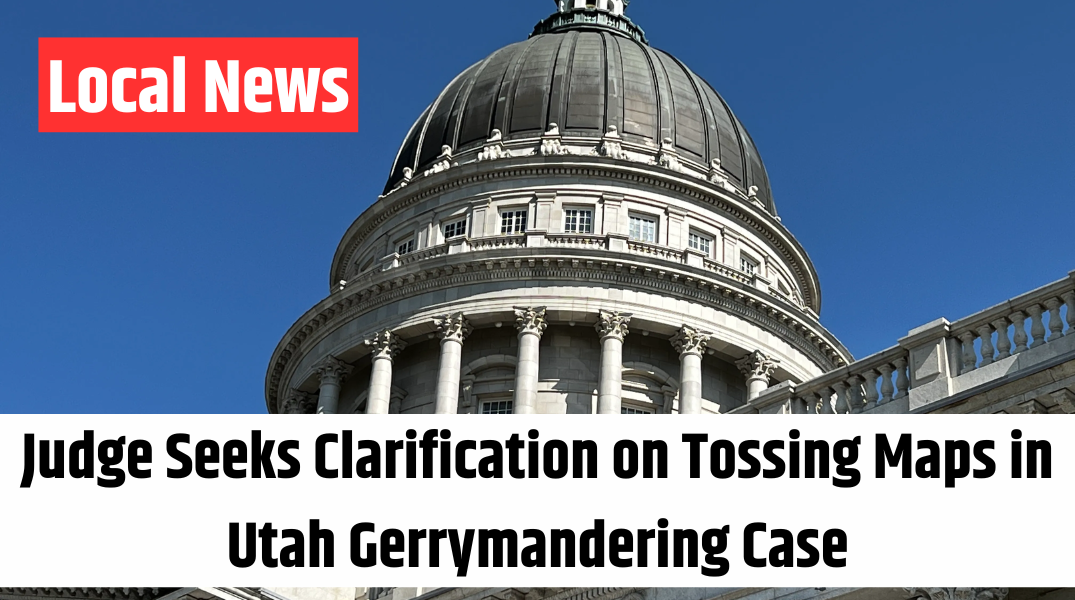
November 23, 2025

SALT LAKE CITY — A Utah judge overseeing a lawsuit challenging the state’s congressional maps is requesting further legal arguments on whether the current district boundaries should be discarded, signaling potential movement toward a resolution.
Judge Dianna Gibson of the Third District Court issued an order on March 31 asking attorneys representing the plaintiffs—consisting of the League of Women Voters, Mormon Women for Ethical Government, and seven Salt Lake residents—to clarify their legal basis for requesting the removal of Utah’s congressional maps.
The lawsuit challenges the redistricting process, alleging that state lawmakers ignored voter-approved Proposition 4, which had established an independent commission to prevent gerrymandering. Instead, the legislature replaced the initiative with Senate Bill 200, which the plaintiffs argue unfairly divides Salt Lake County into multiple districts to dilute certain voting blocs.
Judge Gibson is particularly interested in whether the legislature’s failure to follow Prop 4’s anti-gerrymandering guidelines is enough to warrant discarding the current maps or if further evidence is needed to prove their unlawfulness. Additionally, she is seeking clarification on the plaintiffs’ reasoning for requesting a permanent injunction against the legislature’s district lines.
The plaintiffs are required to submit their additional legal arguments by April 8, after which the legislature will have about a week to file a response. A final ruling date has not been set, and the order does not indicate a guaranteed outcome in favor of the plaintiffs. However, the judge’s request suggests the case is progressing toward a critical decision.
The legal battle stems from a 2018 citizen-led initiative known as Prop 4, which sought to create an independent redistricting commission. In 2020, lawmakers weakened the initiative, implementing their own district maps through S.B. 200. The plaintiffs filed their lawsuit in 2022, arguing that the maps unfairly manipulate district boundaries for political advantage and violate Utahns’ constitutional right to reform their government.
In a landmark 2024 ruling, the Utah Supreme Court reaffirmed that citizens have the right to alter and reform their government, rejecting the legislature’s claim of unchecked authority to repeal voter-backed initiatives. This ruling sent the case back to the lower courts for further deliberation.
As legal arguments continue, Utah officials, including Lt. Governor Deidre Henderson, have expressed a desire for a resolution before November 1 to ensure any new maps can be drawn before the 2026 midterm elections.
Administrator
Keelee McCain is a junior at Weber High School. This is her second year on staff, this year as Assistant to the Chief. She does have a life (probably) but she can't think of anything to write in here, so she's probably just going to ramble now. She has an orange cat who she likes better than any human. If you see her being quiet or not sitting on top of a desk, there is something very wrong. In her free time she enjoys harassing her favorite teachers and sleeping. Her life plans include making it through high school and leaving. Happy lifeing.